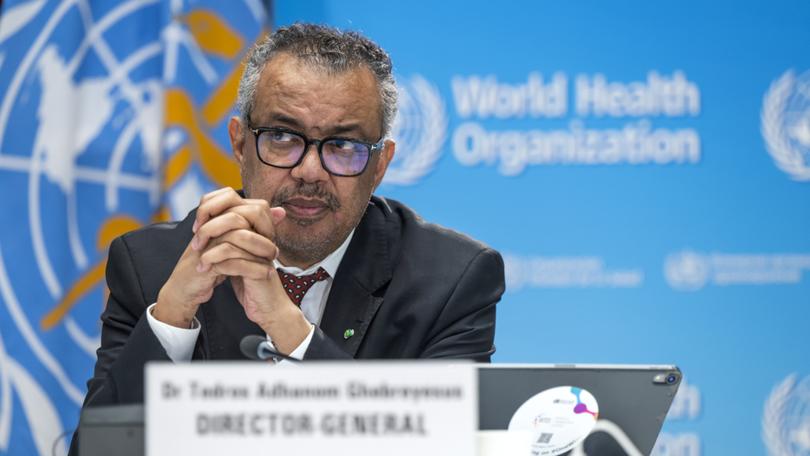Mpox outbreak: WHO declared global public health emergency as clade Ib variant spreads
The World Health Organisation has declared a global public health emergency due to the rapid spread of a new variant of a potentially deadly virus.

The World Health Organisation has declared mpox a global public health emergency for the second time in two years, following an outbreak of the viral infection in Africa that appears to be spreading more easily.
Mpox - formerly known as monkeypox - can spread through close contact and while it is usually mild, it can be fatal in rare cases.
It causes flu-like symptoms and pus-filled lesions on the body.
Sign up to The Nightly's newsletters.
Get the first look at the digital newspaper, curated daily stories and breaking headlines delivered to your inbox.
By continuing you agree to our Terms and Privacy Policy.The outbreak in Democratic Republic of Congo began with the spread of an endemic strain, known as clade I.
But a new variant, clade Ib, appears to spread more easily through routine close contact, including sexual contact.
An emergency committee met on Wednesday to advise WHO director-general Tedros Adhanom Ghebreyesus on whether the disease outbreak constitutes a “public health emergency of international concern,” or PHEIC.
PHEIC status is the WHO’s highest level of alert and aims to accelerate research, funding, international public health measures, and cooperation to contain a disease.
“It’s clear that a coordinated international response is essential to stop these outbreaks and save lives,” Mr Ghebreyesus said.

It has spread from DR Congo to neighbouring countries including Burundi, Kenya, Rwanda and Uganda, triggering the action from the WHO.
“The detection and rapid spread of a new clade of mpox in eastern DRC, its detection in neighbouring countries that had not previously reported mpox, and the potential for further spread within Africa and beyond is very worrying,” Mr Ghebreyesus added.
Mr Ghebreyesus said on Wednesday that WHO had released $US1.5 million ($A2.3 million) in contingency funds and plans to release more in the coming days.
WHO’s response plan would require an initial $US15 million, and the agency plans to appeal to donors for funding.
Earlier this week, Africa’s top public health body declared an mpox emergency for the continent after warning that the viral infection was spreading at an alarming rate, with more than 17,000 suspected cases and more than 500 deaths this year, mainly among children in DR Congo.
A total of 13 countries have reported cases.
Professor Dimie Ogoina, chair of WHO’s mpox emergency committee, said all members unanimously agreed that the current upsurge of cases is an “extraordinary event,” with a record number of cases in DR Congo.
Vaccines and behaviour change helped stop the spread when a different strain of mpox spread globally, primarily among men who have sex with men, and the WHO declared an emergency in 2022, which it ended 10 months later.
In DR Congo, the transmission routes need further study, the WHO said.
